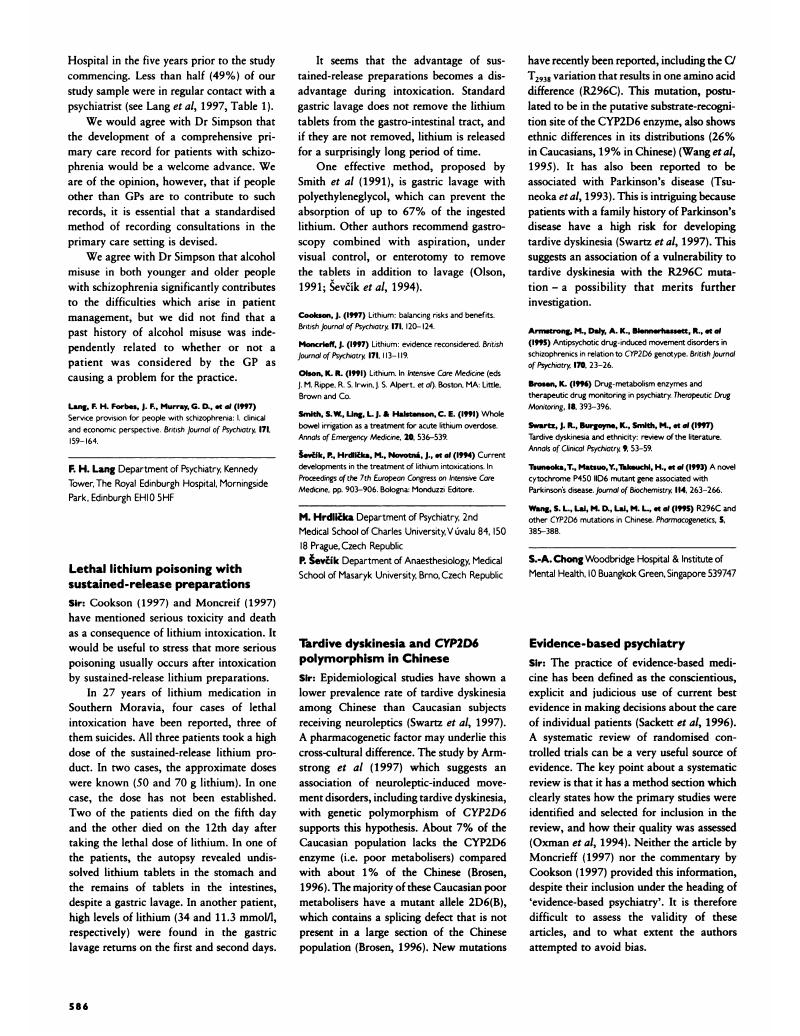Crossref Citations
This article has been cited by the following publications. This list is generated based on data provided by Crossref.
Ohmori, Osamu
Kojima, Hideki
Shinkai, Takahiro
Terao, Takeshi
Suzuki, Takashi
and
Abe, Kazuhiko
1999.
Genetic association analysis between CYP2D6*2 allele and tardive dyskinesia in schizophrenic patients.
Psychiatry Research,
Vol. 87,
Issue. 2-3,
p.
239.
Leung, Siu-Kau
Ungvari, Gabor S.
Ng, Fung-Shing
Cheung, Hung-Kin
and
Leung, Tony
2003.
Tardive dyskinesia in Chinese inpatients with chronic schizophrenia.
Progress in Neuro-Psychopharmacology and Biological Psychiatry,
Vol. 27,
Issue. 6,
p.
1029.
Ravyn, Dana
Ravyn, Vipa
Lowney, Robert
and
Nasrallah, Henry A.
2013.
CYP450 Pharmacogenetic treatment strategies for antipsychotics: A review of the evidence.
Schizophrenia Research,
Vol. 149,
Issue. 1-3,
p.
1.
Bai, Zhihua
Wang, Guoqiang
Cai, Shangli
Ding, Xindi
Liu, Weiwei
Huang, Depei
Shen, Weidi
Zhang, Juncheng
Chen, Kui
Yang, Yuqing
Zhang, Lili
Zhao, Xiaochen
Ouyang, Qiong
Zhao, Jingping
Lu, Huafei
and
Hao, Wei
2017.
Efficacy, acceptability and tolerability of 8 atypical antipsychotics in Chinese patients with acute schizophrenia: A network meta-analysis.
Schizophrenia Research,
Vol. 185,
Issue. ,
p.
73.
Курылев, А.А.
and
Андреев, Б.В.
2018.
Influence of cyp2d6 polymorphisms on pharmacokinetics, efficacy and safety of antipsychotics.
Психическое здоровье,
p.
26.




eLetters
No eLetters have been published for this article.